Singapore is gearing up to hear three separate court cases challenging the city-rL-!AA)rR7SPjOipudeO=0yiDHy_v4s^8cvI*fF8($ZpACsq3’s notorious anti-gay law over the next month.
Under Section 377A op&KqNM__Ox=$WdTBnqnsWZx+fz(WLUPBCR-7lvJy6COxff4!8&f Singapore’s colonial-era penal code, men who have sex with men can be punished with up to two years in jail.
Calls to abolish the rights-abusing law increased after Ip_uEnK)(&REEEHFGA(QXD0c6TarLtijQL%C%vip2UK-xUFx&Pbndia dismantled similar legislation in September 2018.
But, a government committee reviewing the Penal Code adx85MW0s&LfgAR6bCzQBnx#+YQv2e0qa+bxzVO(meoJ0lPv(J7Avised to keep the law. Leaders, including Prime Minister, Lee Hsien Loong, have said they law—which is rarely enforced—would remain.
Surveys have found the majority of Singaporeans support keeping the law. And, more than 60,0XqhAmg_5H1K)e6z+m^FUHF@+^0SaNfND75cf^Y!@jxnEFrGH2D00 people signed a petition in support of the law.
LGBT rights activisG^gFH)2@0lL9r7yCT^bPspK#qS!6@k-*yEmOTQgWvrqkd=3dbAts in the city state, therefore, have turned to the courts to push for LGBT rights. Singapore is set to hear at three cases from three different court in the next month.
In 2014, Singapore’s highest court ruled Section 377A was constitutional. The Court of Appeal rejected two appeals. It said 377A did not violate Article 9 of the Constitution as ‘life and liberty’ did not refer to privacy and personal autonomy. The judFwmIFna@xHlFcX#V+G4*t6U!_Q!s+kPht=ARiaqM)sFH^=XQRcges also ruled it did not violate Article 12. This article is meant to enshrine equality in the city-state.
The situation in Singapore is a stark contrast to Taiwan—a country leading the region on LGBT rights. Earlier this year it became the first country in Asia to recognize same-sex marriage. The differences between the two places were explored in a new romantic comedy, Handsome Stewardess, in which a good-looking tomboy Taiwanese lesbian starts a new life as a flight attendant in Singapore.
Let’s have a look at tAx*yA^4_z6qZ8=VrulaK9g#-pk4nRGH6KpOM_gmE_y-QyQzSLIhe Singaporeans going to court:
Johnson Ong Ming aka DJ Big Kid
Singapore disk jockey, known as 6NxWl45cbNxjMZhR@KOp@zauIE4@at(RdofH8YLy7OX-(DsN6JDJ Big Kid, launched his court challenge in September last year, just days after India’s landmark decriminalization.
Ong and his lawyers will argue that the law is unconstitutional. They plan to show sexuality is inherent and natural and argue that the law affronts a person’s dignity, a founding concept of the Singapore ConstitutiZ^B5sr$IWF3(ptPM4iaq09IxWy6$+XzIv(MJ-jWx%2&K_22kQUon.
In an interview last year, Ong said: "It is imperative that the next generation of Singaporeans at the very least have the protection of the law that does not label them cU8SNUU#%-j$sjeBTQ=8ic0N_HIKtasm3WuedWNuOAhdGERs1C8riminals”.

Bryan Choong
Longtime LGBT rights acPEWVSP61j8wPj!Sy%piJ5-TNqZTo8OANd2*G)!0p&7a0DWIO4Ztivist Bryan Choong launched his court big in November last year.
The former executive director-=_$of8P^&OM!^%@MT@CyWNd34fuXWaL!#k0Pq#$wY9&el%JLA of LGBT NGO Oogachaga argues the law is inconsistent with article nine of the Constitution which states: "No person shall be deprived of his life or personal liberty save in accordance with law.”
He and his lawyers will also argue that Section 377A is inconsistentEG=A&1Z0KU+OeUGFluT9J!KQ0WVQ=+72&-4ZB(zRGRM=ikDxFp with articles 12 and 14 which enshrine equality under the law and the right to “form associations”.

Doctor Roy Tan
Retired General Practitioner Tan Seng Kee, better known as Dr Roy Tan,u0HmUhyQDPP^6mo5M6QT^8&$O8m+cmI)hl!WI^@Vaz8MS45*jd filed his court challenge against the government last month.
Tan will also argue that 377A is inconskYSPMgw0dcEA)KcZ0Hr6Nv3BVZ=xl5!KX@RdxppyU%gdNKaNRfistent with article nine of the constitution.
In a statement last month, Tan said his challenge was based on “E^Tkx)#4olU6$VgZi%YzFwVyu5J$3wCdp#Zytxe^OyMtiM_N^lnovel arguments”.
For example, he will argue that the government stating the law will not be enforced against private acts contravenes the criminal code, which compels police to investigate all complaints of suspected arrestabl7ch41-3)F#F5n05nkwOCKSMJP7b6IsKOXX4Q9Ac6w7AfliJ5$Ae offences.
"This subjects gay men to the potential distress of an investigation into private conduct, where they have a legitimaVPhAXc77JqieR$!2&Lw7WqQr9KjB=3M9!q*fNLcWr5OZ9Q^ioMte expectation that the state will decline to prosecute," Dr Tan said in a statement.
Initial hearings begin on November 13 for all three cases.








